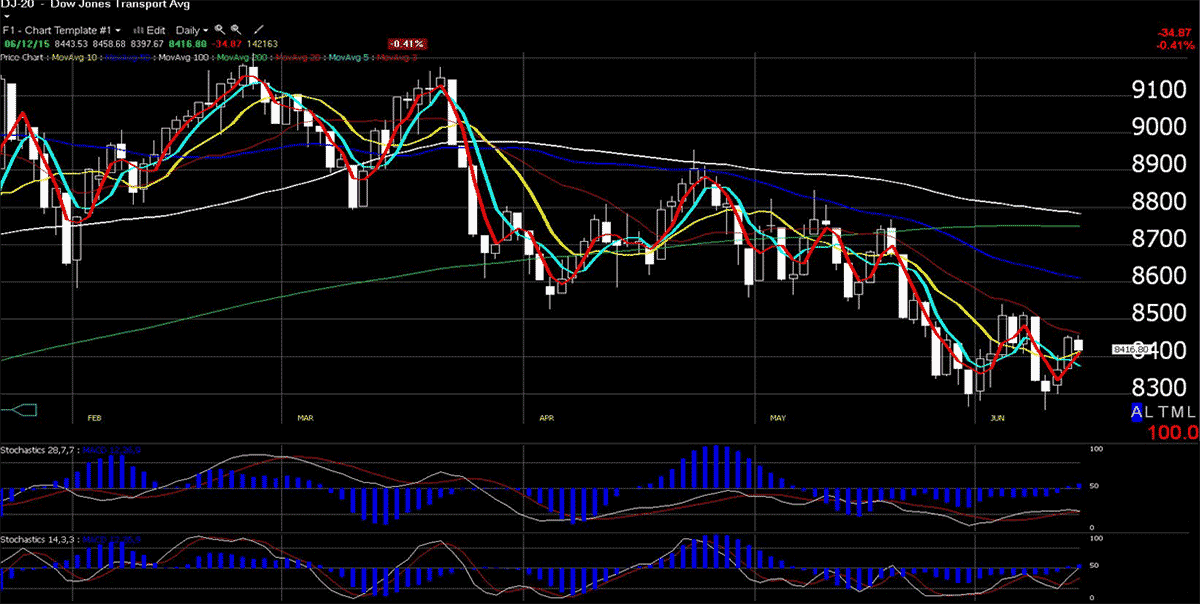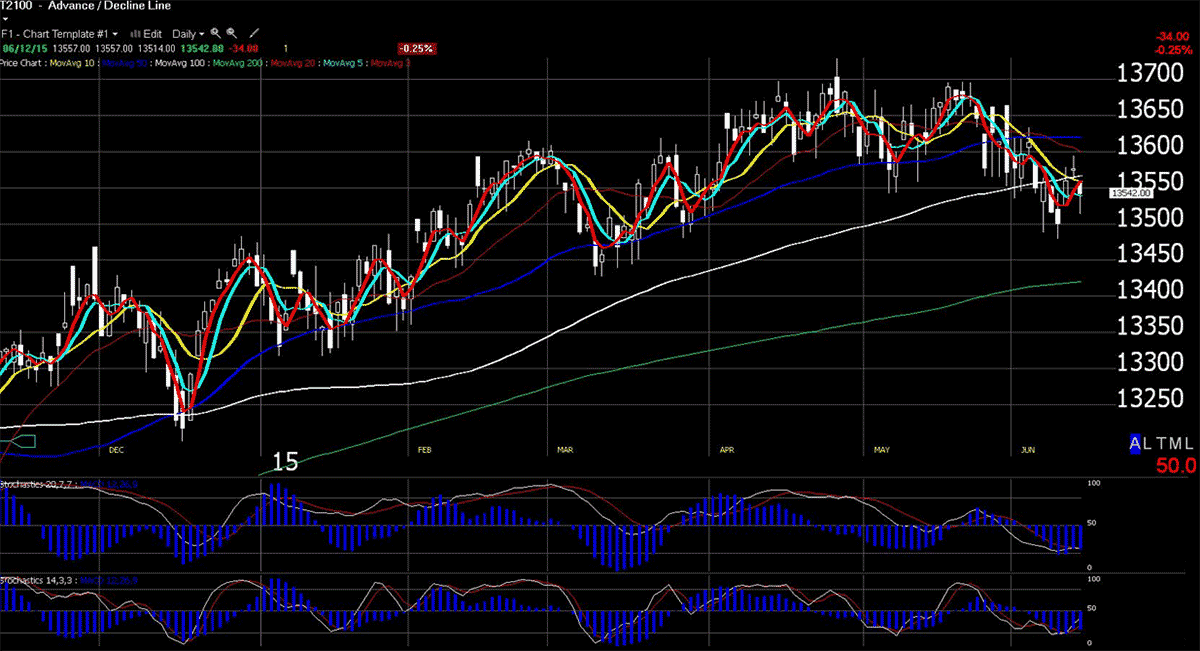European markets were on a roller coaster ride last week as rumor and counter rumor about a Greek deal with the European Central Bank circulated and affected sentiment. When news hit Friday that the IMF team had left for Washington, the DAX (Germany’s main stock index) dived only to recover later in the day when it was announced that a new proposal was to be presented by Prime Minister Tsipras.
Greeks are withdrawing money from their banks at an alarming rate and it is hard to see how this state of chaos can long endure. I reckon the next two weeks will see a conclusion one way or another, so expect more volatility in the near term. If a deal is not reached it is highly likely there will be a significant correction in European and American stock markets.
To give you a sense of what is in store I quote a recent article from the Irish Times:
Irish Times 11th. June, 2015.
Relations between the Greek government and the European Commission deteriorated last weekend after Mr. Juncker criticized Mr. Tsipras for rejecting outright the latest creditor proposal in an address to the Greek Parliament last Friday.
The meeting took place as Standard and Poor’s downgraded Greece’s rating by one notch last night. The rating agency lowered its rating to “CCC” from “CCC+’” with a “negative’’ outlook, stating that it was likely the country will default on its commercial debt within a year if it can’t strike a deal with its creditors.
Greece’s decision to defer payment of a €300 million payment due to the IMF last week (amounting to a default) showed it was giving higher priority to pensions and other domestic spending than making debt payments on time, Standard and Poor’s said.
Greece faces (total) default at the end of this month if it does not strike a deal with international creditors to unlock bailout money.
Focus is now turning to the next Eurogroup meeting of euro zone finance ministers scheduled for next Thursday (18th. June) in Luxembourg.
Signs that a possible deal could be achieved before then emerged yesterday from Berlin, amid reports that Germany was privately in favor of providing a staggered aid deal to Greece, despite continuing opposition from many within MS Merkel’s CDU party towards granting Athens further aid without significant reforms.
Bloomberg reported that Berlin was willing to unlock badly-needed aid if Greece agreed to even one reform demanded by creditors, a position that was at odds with the tough stance taken by Germany publicly.
“The goal is, we want to keep Greece in the euro zone,” Chancellor Merkel said on arrival in Brussels. “Where there is a will, there is a way.” As leaders met in Brussels yesterday, the European Central Bank in Frankfurt was said to have increased the level of emergency liquidity assistance (ELA) provided to the Greek banking sector.
There were reports that the ECB agreed to increase the ELA provision to Greece by more than €2 billion, the biggest weekly increase since mid-February, bringing the total emergency cash being provided to Greek banks to more than €83 billion.
Yesterday, Taoiseach Enda Kenny (Prime Minister of Ireland) warned that “time was running out” for Greece. “Since the new Government was elected in Greece, at every European Council meeting there have been offers of support, encouragement and assistance from leaders around the table but time is running out here.” He said that while that support and encouragement “still remains,” it was up to politicians in Greece to be “creative in the way they deal with the situation.”
“Obviously this can’t continue indefinitely... I know that there have been meetings arranged today between the prime minister and some of the principles of Europe and I do hope that a focus can be brought about on this and that a decision is made that will allow Greece to continue to play their part as a serious member of the euro zone.”
American Stock Market Technical Weakness Continues
Given the precarious nature of European financial stability it is not surprising that the technical condition of the American stock market is weak.
The Dow Transports have collapsed with price action remaining significantly below the 200 DMA. The index is on the cusp of a “death cross” (the 100 DMA crossing the 200 DMA). Such an event would be significantly bearish.
For the first time since October 2014 we are beginning to see weakness in the NYSE Advance Decline Line. This is a very important indicator and, in conjunction with classic Dow Theory, it is great at forewarning significant market corrections. Price is beginning to consolidate below its 100 DMA. This weakness is confirmed by the fact that two Hindenberg Crash Omens were received Wednesday June 10th and Thursday June 11th; accordingly, caution is warranted.
Charts: courtesy of Worden Bros.
© Christopher M. Quigley 15th. June 2015








